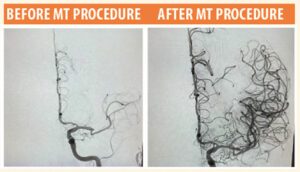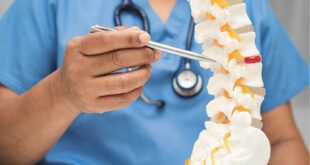 UF Health is revolutionizing emergency stroke care in Central Florida by introducing the region’s first Mobile Stroke Treatment Unit to Lake and Sumter counties. This groundbreaking ambulance represents a significant advance in stroke response capabilities, bringing hospital-level treatment directly to patients’ doorsteps when every minute counts.
UF Health is revolutionizing emergency stroke care in Central Florida by introducing the region’s first Mobile Stroke Treatment Unit to Lake and Sumter counties. This groundbreaking ambulance represents a significant advance in stroke response capabilities, bringing hospital-level treatment directly to patients’ doorsteps when every minute counts.
Understanding Stroke:
Recognizing the Warning Signs
A stroke occurs when blood flow to part of the brain is interrupted, either by a blocked blood vessel (ischemic stroke) or bleeding in the brain (hemorrhagic stroke). Time is absolutely critical in stroke treatment, as brain cells begin dying within minutes of being deprived of oxygen and nutrients.
The American Stroke Association emphasizes remembering the acronym BE-FAST to identify stroke symptoms:
B – Balance problems, sudden dizziness or loss of coordination
E – Eyesight changes, sudden vision loss or blurriness
F – Face drooping, ask the person to smile and check for uneven facial features
A – Arm weakness, ask the person to raise both arms and see if one drifts downward
S – Speech difficulty, slurred speech or trouble understanding
T – Time to call emergency services immediately
Additional warning signs include sudden severe headache, numbness on one side of the body and confusion or difficulty understanding speech. These symptoms can appear suddenly and may seem to improve, but immediate medical attention is still crucial.
What Makes This Mobile Unit Special
A Mobile Stroke Treatment Unit is a custom-designed ambulance engineered to diagnose stroke in patients in the field. The unit serving The Villages area is equipped with a state-of-the-art 32-slice CT scanner, telemedicine equipment and medications specific to acute stroke treatment, including the “clot-busting” drug TNK and reversal agents for hemorrhagic stroke.
The MSTU is staffed by a highly trained team that includes a CT technologist, an EMT, a paramedic and an RN specially trained in stroke care, with a stroke neurologist available via telemedicine for real-time consultation and treatment decisions.
The need for rapid response cannot be overstated. IV thrombolytics are most effective when given within the first 60 minutes from symptom onset, leading to improved functional outcomes and reduced risk of death or disability. This “Golden Hour” concept drives the urgency behind the mobile stroke unit program.
The UF Health Mobile Stroke Treatment Unit facilitates faster stroke diagnosis and treatment because care is started on board the vehicle. For patients experiencing a large-vessel stroke, the MSTU can deliver them directly to the operating room for an emergent, lifesaving procedure called mechanical thrombectomy, bypassing the emergency room.
Proven Results from Gainesville Experience
Since launching in July 2023, UF Health’s Gainesville-based MSTU has demonstrated remarkable success, responding to more than 1,850 calls, admitting 900 patients and providing over 220 acute, critical interventions.
The statistics speak volumes about the unit’s impact. Nationally, only about 10% of stroke patients receive treatment within 90 minutes of when they were last known to be well, But, the Gainesville MSTU achieved treatment for 51% of patients within that crucial timeframe. Even more impressive, while only 1.4% of patients nationally receive treatment within 60 minutes, the MSTU treated 29% of patients within that golden hour window.
Bridging Rural Health Care Gaps
This expedited care extends beyond urban areas to contiguous counties. The Gainesville unit received 237 requests for aid from surrounding rural communities. A recent study published by the University of Florida College of Medicine in the journal Stroke, showed that UF Health’s approach of sending a specially equipped stroke ambulance to meet paramedics at designated “rendezvous points” to take patients from surrounding rural areas significantly improves timely stroke care — on average, by nearly an hour.
For Lake and Sumter county residents, this mobile unit eliminates geographical barriers that have historically limited access to specialized stroke care. Rural and suburban residents now receive the same level of expert intervention as those living near major medical centers, ensuring that location no longer determines the quality of emergency neurological care available during life’s most critical moments.
UNIVERSITY OF FLORIDA HEALTH
UFHealth.org/MSTU
 Central Florida Health and Wellness Magazine Health and Wellness Articles of the Villages
Central Florida Health and Wellness Magazine Health and Wellness Articles of the Villages



